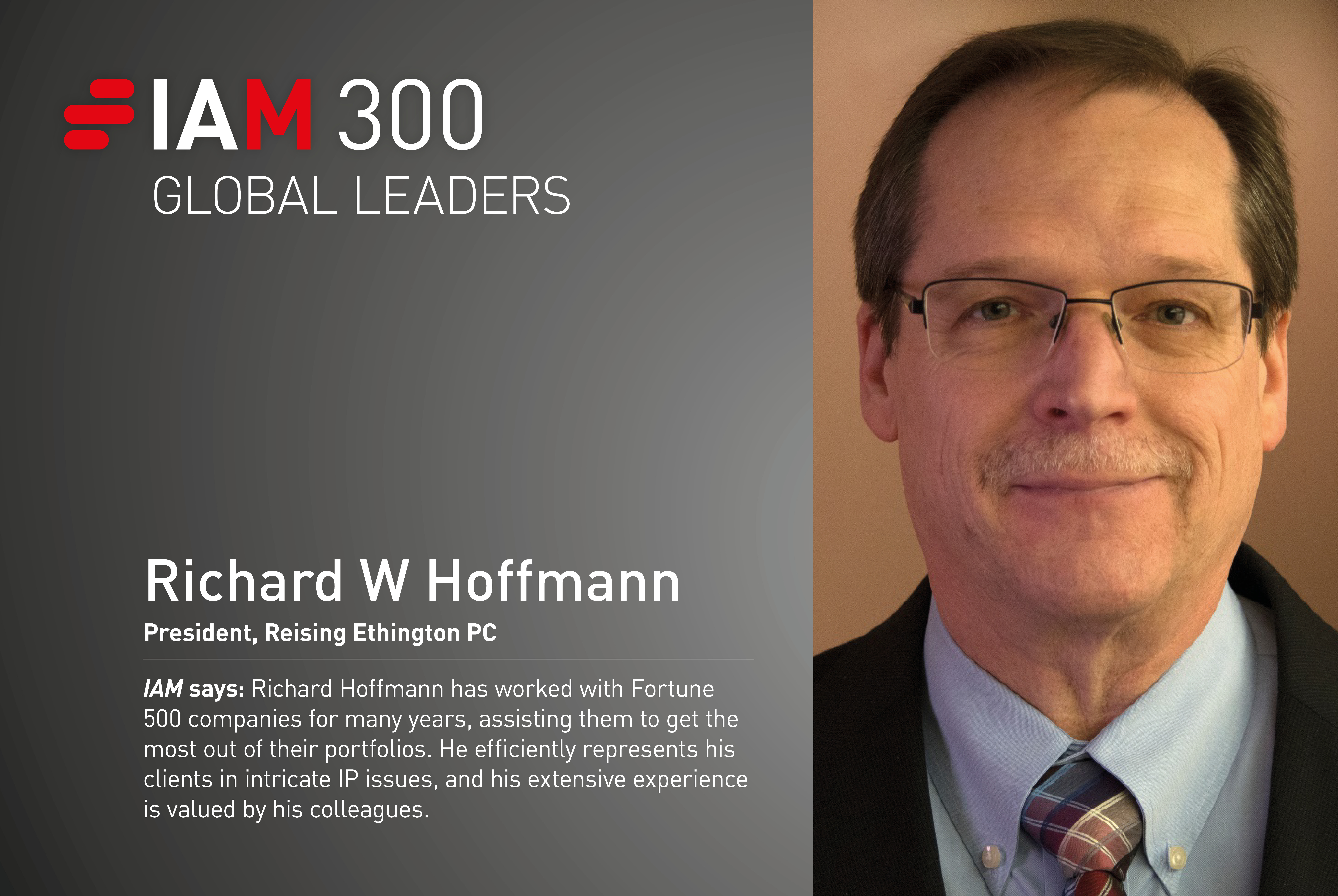Rick Hoffmann
There is talk about arbitration being used to settle SEP/FRAND disputes. Are there any pitfalls to this that rights holders should look out for?
In my experience, rights holders are typically awarded less in arbitration and litigation than what is provided for in the statute. It is crucial that at least one person who owns a patent be on the arbitration panel. Further, any arbitration should allow for an appeal for review to a court, to keep the panel in check.
What are the pros and cons of an aggressive enforcement strategy?
An aggressive strategy tends to resolve issues faster than a more tempered approach. When accused infringers learn that the enforcement effort by a particular patent owner has been aggressive, they tend to be more reasonable earlier in the process, rather than dragging out the proceedings. However, one drawback of this is the initial commitment of time and funding to support such an approach. The client will incur more expense upfront but this typically pays off in the long term.
You have been the lead counsel in more than 100 litigation matters in federal courts. What do rights holders need to know before commencing patent litigation in the United States?
Stake holders must first consider where the enforcement effort can be brought for patent litigation. The potential location of the litigation may have some bearing on who to target for the action (eg, a seller or manufacturer). Patent holders may have to bring the litigation in forums far from their residence and the cost of this must be considered. Another important consideration is to place the patent in the best possible position to defend against a post-grant review or inter partes review. An accused infringer will certainly consider one of these proceedings to resolve the validity issue. Accordingly, the patent owner should always consider performing a worldwide validity investigation prior to filing and, if necessary, file a request for re-examination of the patent to resolve any questionable claimed subject matter.
What are the biggest challenges facing your clients at present, and how are you helping them to overcome these?
One big challenge is the infringement on third-party seller platforms such as Amazon, Groupon, Alibaba and Walmart. None of these platforms has a particularly effective way of resolving patent disputes. The identity of many sellers is hidden, making them difficult to locate. Additionally, many of these sellers have multiple accounts so they can easily continue infringing even if one of the sites is taken down. One thing that has helped our clients is to file a patent infringement suit against one or more infringers and obtain an injunction. This can then can be served on the third-party seller platform; if the platform continues to allow the infringement to occur, it may be liable. Once such an injunction is served, the platforms tend to become a little easier to deal with when seeking to take down infringers.
Another way that we help clients is, where applicable, to obtain design patents and registered trademarks in product configurations. While these only cover ornamental aspects of a product, I have found it particularly helpful because the third-party seller platforms are much more willing to take down products that infringe design patents or registered trademarks. Bold infringers tend to copy the protected product down to every last detail, so these methods have proven effective.
Is Reising currently taking steps to future-proof itself, and if so, what does this approach look like?
As with most businesses, Reising relies on the quality and timeliness of its work. Most clients are looking to maintain a tight control on their patent budgets, and they require relatively quick filing of their applications. At Reising, we are working to automate certain procedures to be sure that notices and reports to the client are made quickly and at minimal cost. We are also using software to help provide consistency in our patent applications. Our in-house staff works to monitor the marketplace for tools that can help streamline our operations and produce a consistent and quality product for our clients.
Further, in today’s world, remote work is the norm. This allows Reising to seek work from potential clients that are not physically located near our main offices. We maintain an in-house team that maximises our ability for attorneys to work with remote clients without encountering IT issues. In this way, we can leverage our mid-Western rates, which are far more cost-effective than those in other areas of the country.
Rick Hoffmann
President
[email protected]
Richard Hoffmann is a shareholder and president of Reising Ethington PC, with over 30 years’ experience in intellectual property. He has a BS (with honours) in chemical engineering from Michigan Technological University and a law degree (magna cum laude) from Michigan State University College of Law. Mr Hoffmann has been lead counsel for IP cases in federal district and appellate courts throughout the United States, before the USPTO and the International Trade Commission.
